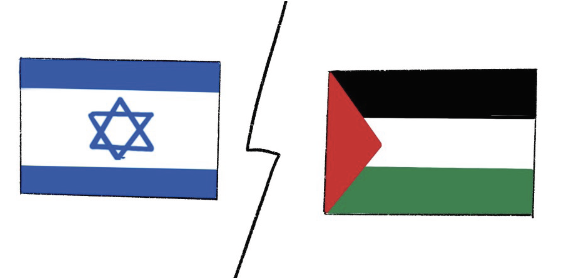
The Israel-Palestine conflict can be traced to 1922 during the British mandate over Ottoman territories under the League of Nations. Zionism and World War II motivated European Jews to move to Palestine to escape anti-Semitism and establish a Jewish nation. In 1947, the United Nations adopted Resolution 181, a partition plan that divided Palestine into separate Jewish and Arab states and established a Special International Regime for Jerusalem.
On May 14, 1948, Israel declared independence, precipitating the first Arab-Israeli War. Following the war, the disputed territory was divided into the West Bank, the Gaza Strip, and the state of Israel. In 1987, the Six Day War broke out between Israel and its Arab neighbors. The Intifadas of 1987 and 2000 featured mass agitation and protests against one Israeli.
The Madrid Conference in 1991, co-sponsored by the Soviet Union and the United States, was the first opportunity for peace negotiations between Israelis and Palestinians. The Oslo Accords of 1993 and 1995 temporarily mediated conflict, establishing a framework for Palestinians’ self-governance in the West Bank and Gaza and recognizing both the Israeli government and the newly instituted Palestinian Authority.
Though peace talks have been taking place for over 25 years, none have resolved the conflict. Proposed solutions to the Israel-Palestine conflict have included the two-state solution and the one-state solution. The two-state solution, which has gained significant international support, consists of establishing an Israeli state with pre-1967 borders, and a Palestinian state, including most of the West Bank and Gaza. However, there has been no discussion of how the two-state solution would account for Palestinians within the pre-1967 Israeli borders and Jewish Israelis beyond those borders. Reaffirming U.S support for the two-state solution, the Biden administration has promoted the normalization of Israeli–Arab relations and resumed humanitarian aid for Palestinians.
Having grown up in Lebanon and Egypt, English Teacher Monica Matouk emphasized the important role education could play in the future of the Middle East saying, “This is such a rich and complex part of the world, and it is often misrepresented and misunderstood here in the West. For many, its complexity is understandably frustrating, and being ‘for’ one side and ‘against’ the other can feel like a tempting way to make sense of it. But of course that’s a shortcut, as well as a dead end. This reductive thinking is not the same thing as extremism, but the net effect can be similar: people push themselves into corners that distort, flatten out, demonize and dehumanize the other. The further apart we grow, and the more polarized we become, the less able we are to understand one another and find common ground.”
Ms. Matouk, highlighting her appreciation for Deerfield’s Arabic Program, added, “We urgently need to break out of the binary thinking so much of the discourse is trapped in today, and develop the creativity, intellectual mettle and courage to try to forge new solutions.”
Bibliography:
Council on Foreign Relations. Accessed February 6, 2023. https://www.cfr.org/backgrounder/what-us-policy-israeli-palestinian-conflict.
“Israeli-Palestine Conflict.” Global Conflict Tracker. Accessed February 6, 2023. https://www.cfr.org/global-conflict-tracker/conflict/israeli-palestinian-conflict.
“The Question of Palestine.” United Nations. Accessed February 6, 2023. https://www.un.org/unispal/history/.

